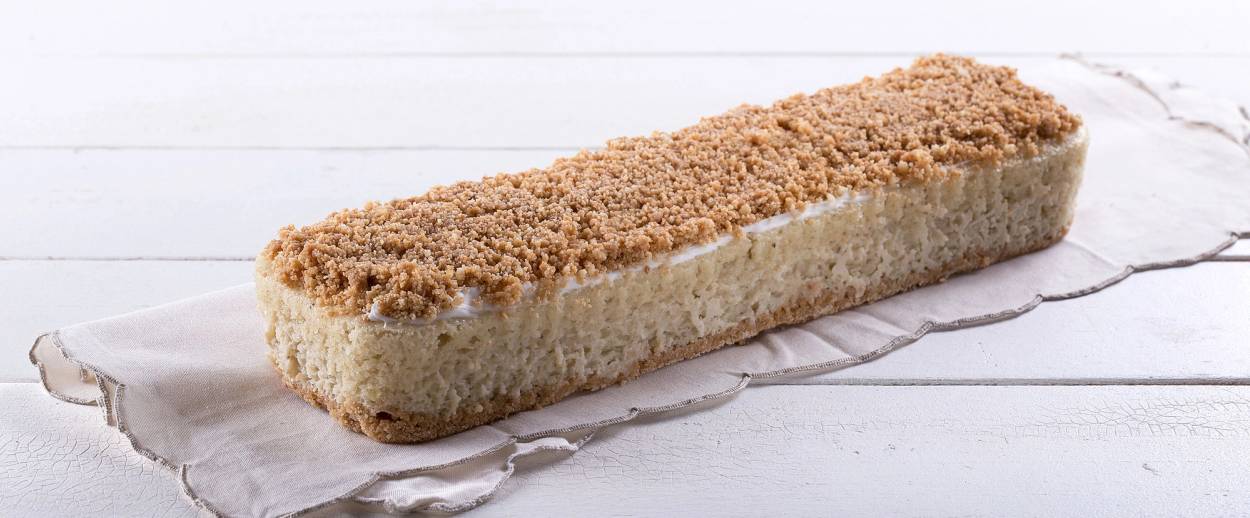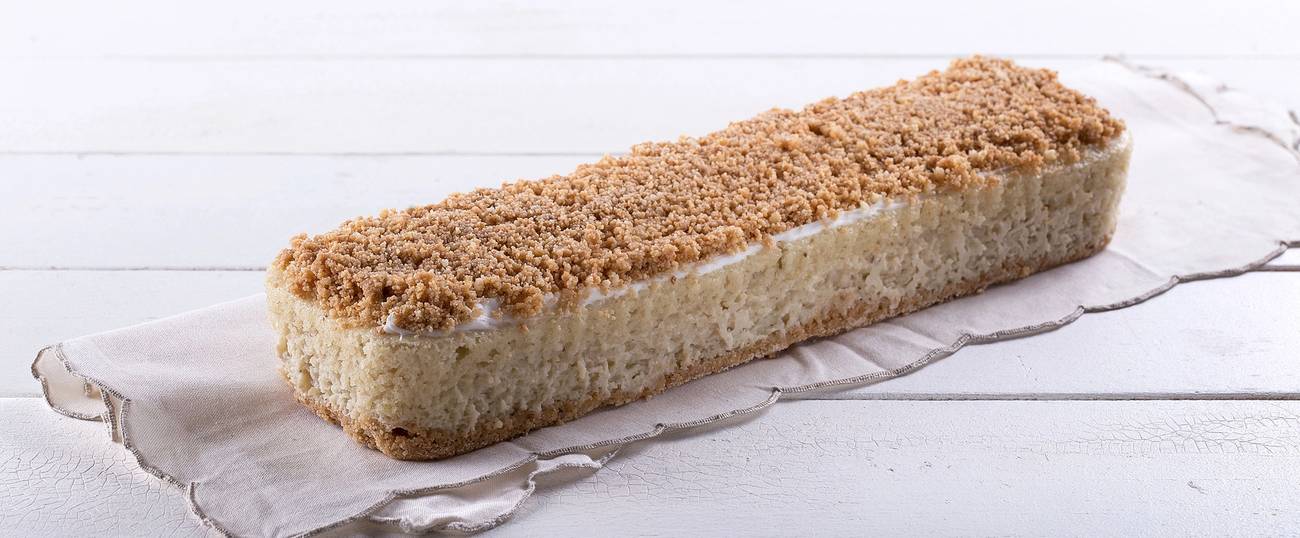Vegans Give Shavuot a New Taste
In Israel, growing numbers of people are avoiding dairy—the basis for many of the holiday’s famous recipes. So chefs are creating new recipes that everyone can enjoy.




Ever since a famous YouTube lecture by Jewish-American animal-rights activist Gary Yourofsky made its way to Israel in 2011, veganism has been growing in Israel among secular and Orthodox Jews alike. According to a 2016 Yediot Aharonot survey, about 8 percent of teenagers in Israel define themselves as vegan; more than 5 percent of the country’s adult population say no to meat, dairy, and eggs, according to the latest report by the Israel Central Bureau of Statistics. Last year, the Independent declared Tel Aviv the vegan capital of the world.
Of all the Jewish holidays, Shavuot may be the least compatible with Israel’s growing veganism. Shavuot commemorates the giving of Torah on Mount Sinai, and salutes spring and agricultural bounty. But it is also often viewed as the country’s most “foodie” holiday, and thanks to successful campaigning by the Israeli Milk Council in the country’s early years, it has an unbreakable bond with all things milk and cheese in particular. Come May 1, television screens are brimming with slots by companies like Tnuva and Strauss, advertising their latest dairy inventions, while big bakery chains shift into high gear, producing and promoting decadent cheesecakes, creamy mousses, traditional blintzes, and colorful quiches filled with kashkaval and mozzarella cheese.
For decades, the consensus around the cheesy, creamy nature of Shavuot has been so strong that only the lactose intolerant and those allergic to dairy, for whom consuming the delicious offerings of the holiday is dangerous, could voice a wish for an alternative, in the form of soy-milk-based pastries and sorbets. In recent years, however, the tone has shifted. Instead of timidly looking for dairy-free replacements while pining for the real deal, modern-day vegans are actively whipping, baking, and steeping their way to new Shavuot traditions.
One such pioneer is Ori Shavit, a vegan blogger and author who in the past ran the successful Tel-Aivivian vegan pop-up restaurant Miss Kaplan. Shavit, a food writer and former restaurant critic who turned vegan seven years ago, recently published a best-selling vegan cookbook and currently runs a website whose Hebrew name means Vegans Have More Fun. Alongside recipes for salads, stews, and stir-fries, the website is currently featuring pristine cakes and desserts for Shavuot. On Shavit’s Instagram, a number of Shavuot treats created in collaboration with the vegan food blog Tivoneat (tiv’oni means vegan in Hebrew) tempt readers with their creaminess and authentic looks. One retro-looking cheesecake is prepared with silken tofu and lemon juice, and an almond base. A savory quiche marries cauliflower with coconut cream and lentil flour.
“The holiday, in its essence, is completely plant-based,” Shavit said, “as it celebrates the seven specimens of local produce. I like to set my Shavuot table around this theme, but, tradition being tradition, cheese is part of the deal, especially since high-quality vegan cheese and yogurt are so readily available these days.” She’s right: After soy milk became a fixture in Israeli supermarkets, it was the turn for new brands like Vega, Mashu Mashu, and others to revitalize the market for vegan cheese, making the category one of the fastest growing in Israel. According to a 2017 survey by the financial paper Mamon, sales of dairy alternatives saw a stunning 37 percent growth since 2016.
“We’re aware of the fact that most vegans celebrate Shavuot with their non-vegan relatives, and that old habits die hard, so we explain that our vegan cheeses and cream cheese can be used for making a lot of the traditional foods such as ‘cheese’-filled blintzes and ‘cheese’ cake,” said Tzipi Witz, CEO of development for Vega, one of Israel’s biggest vegan-cheese companies. Vega was founded in 2014, and Shavuot is a time of peak activity for the company. “The week before the holiday, we hold ‘Milk-out’ events on university campuses, during which vegan activists explain to passersby how to leave dairy out of their holiday celebrations, and give out samples and recipes,” Witz said. “And every year we get messages from happy customers telling us that their family couldn’t believe that the cake or dessert wasn’t really dairy. That always makes us feel like we’ve had a small part in helping veganism expand.”
For vegan companies and artisans, the eagerness to participate in the holiday, one way or another, is understandable. “Shavuot is Israel’s most profitable food holiday, you simply can’t skip it,” said Ziv Sandler, the owner of Seeds Patisserie, which started as a small bakery in Tel Aviv and grew into a wholesale brand delivering to dozens of stores across Israel. Sandler became vegan a few years ago, following his girlfriend’s lead, and after being exposed to “Gary’s lecture.” “I thought, if it’s good for my conscience and for my health, I better get on board,” he said. Among the vegan community, Sandler reports, his Shavuot products are highly popular. At Seeds, the preparations for the upcoming holiday are underway, with a special line of cakes and pastries, like a coconut and cashew cream-cheese cake and a chocolate babka.
This year, Sandler developed a fluffy, mousse-like substance he utilizes in cheesecakes. It comes together by whipping aquafaba, the cooking water of chickpeas, thanks to a protein the legume leaves in the liquid. It took five years to get to the right texture; he hopes it will take the cake, among vegans and dairy lovers alike. “My main objective is to make things taste good,” he said. “More and more people taste the cakes and pastries and love them, especially if they don’t know they’re vegan and not priming themselves for disappointment.”
“Ultimately, it’s the experience that matters,” said Shavit. “If a cake or a quiche look delicious and tastes great, who cares if it’s tofu, cashew cream, or real cream inside?” She believes that vegan Shavuot will eventually become a part of the Israeli mainstream. “The media will be filled with queries about vegans and Shavuot this year,” Shavit predicted, “because it’s everywhere. Even [popular bakery chain] Abulafia has a savory pastry with vegan cheese now.”
Sandler is cautiously optimistic as well: “The vegan explosion that Israel saw in the last five years is unprecedented,” he said, “and I do hope that the younger generation will carry the torch. There’s definitely more and more demand for dairy-free options on Shavuot, and my ambition as a baker, and as an ambassador, is to prove this holiday can be delicious and vegan.”
Like this article? Sign up for our Daily Digest to get Tablet Magazine’s new content in your inbox each morning.
Flora Tsapovsky is a San Francisco-based food and culture writer.